Movie Review: Chief of War
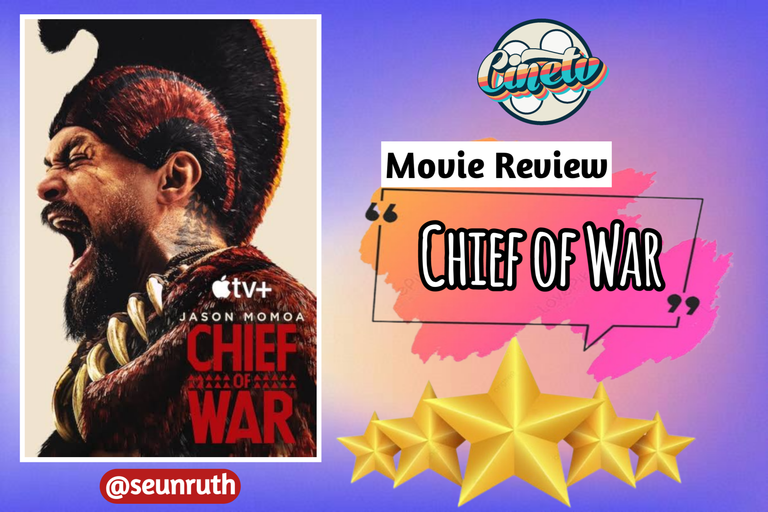
I wasn’t actively looking for a historical epic, nor was I in the mood for a series soaked in war and conflict. But the moment I saw Jason Momoa in the lead, portraying a character rooted in Hawaiian history and cultural resistance, I knew I had to see what this was all about. What I didn’t expect was how deeply this show would pull me into a world filled with identity, sovereignty, and the painful price of rebellion.
In the late 18th century, Chief of War transports us to the very core of the Hawaiian conflict between unification and independence-long before it became a paradise of the world tourist destination or a state of the United States. It is not the Hawaii you think you know. The show opens a raw unfiltered window into a past where native chieftains were not only fighting amongst themselves, but had to contend with the encroaching foreign powers that brought along their guns, greed and ambition to conquer.
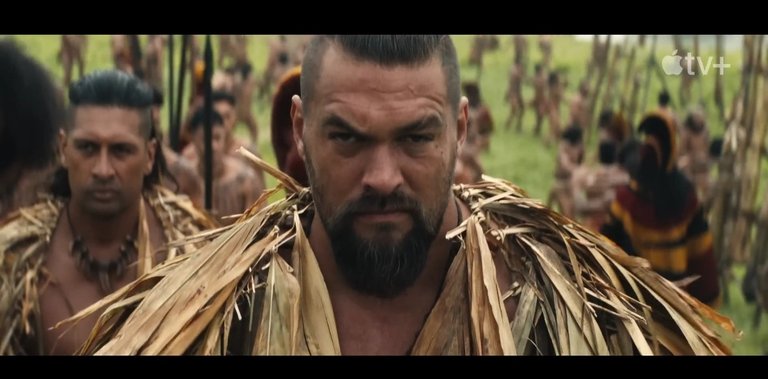
I am being honest because what brought my attention was Jason Momoa. The fact that an indigenous actor performed a story set in his cultural heritage was refreshing and it was needed. However, in addition to the actor, there was the hope of a story that has seldom been told that dared to talk about colonization, cultural erosion and the unsung heroes of island nations. We have all heard of the European conquest of the Americas, the British Empire in Asia, or the Atlantic slave trade-but the Pacific Islands? The spotlight is seldom put on those stories. The Chief of War makes a difference.
In the middle of the Chief of War is Kaʻiana- a fierce warrior who is torn between his sense of duty to himself and nation. He cannot be considered a stereotypical warrior hero. He is complicated, traumatized, arrogant and conflicted. It is through him that the reader gets to see a land whose cheapest chiefs are in conflict with each other as well as the old power play and at the same time there are interventions of outsiders, traders, missionaries, colonists who wait on the periphery like shadows that will surely devour whatever is left after the dust of tribal war settles.
It is not a linear story; it moves back and forth in time, through memory and vision, pain and pride. The episodes continuously compound one another, gradually exposing not only the risks of political opposition but the personal, familial, and community costs it has on human beings. There are betrayals which hurt and tear your heart, and there are victories where you feel you have won in blood.
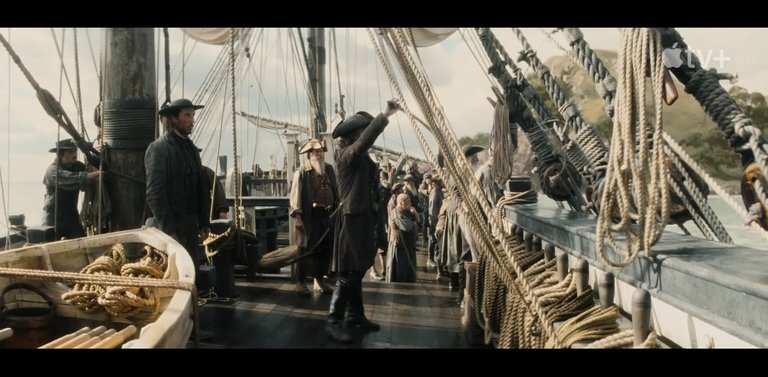
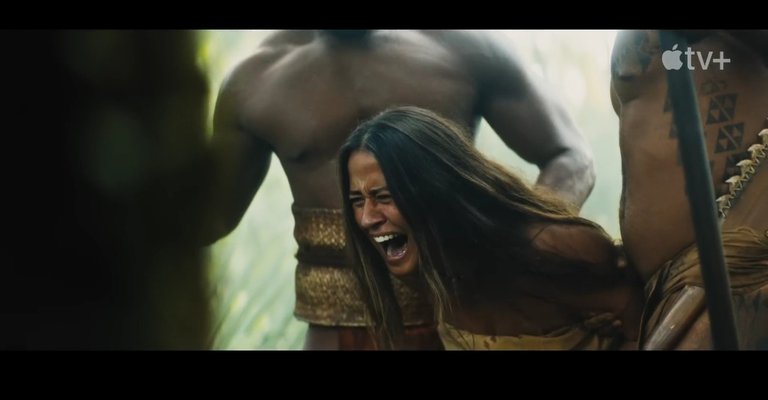
There was one scene that has stuck to my memory especially, when Kaʻiana, among the graves of his defeated brothers, is trying to understand the gods, his own fate, and the meaning of honor. It is a moment of silence that is screaming in terms of generational trauma. The scene itself caused me to stop and think about how much we really do not know about native resistance movements that history has either silenced or downplayed.
Chief of War is committed to authenticity which is one of its strengths. Designs of the costumes, Hawaiian language, customary rituals, chants, and even forms of fighting all testify about profound regard to the culture it depicts. It does not make an effort to modernize or westernize as a means of making it palatable. Rather, it confronts the viewer and asks him or her to sit in discomfort, to learn and to mature in the process.
Cinematography is brilliant. Green mountains, volcanic cliffs and turquoise waters are more than mere background, they are characters in their own right, a symbol of spiritual and ancestral power of the land. And yet in this beauty, there is always something strained,--a feeling that something of value is being lost.
The movie Chief of war brought out something in me. It was not only that I was reading a story, it was that I was existing in it. Being a history lover and a person, who believes in the importance of preserving culture, the story spoke to me. It reminded me of the fact that colonization is not something of the past. Its scars have not vanished--in words, in ground, in mind.
After watching episode four I sat in silence for a moment. I was thinking about how in the world cultures were invaded, written over, erased by other powers--and yet there are still people struggling to reclaim their identity. The struggle of Kaʻiana is not Hawaiian only. It’s universal. It is African, Asian, Native American, Aboriginal.
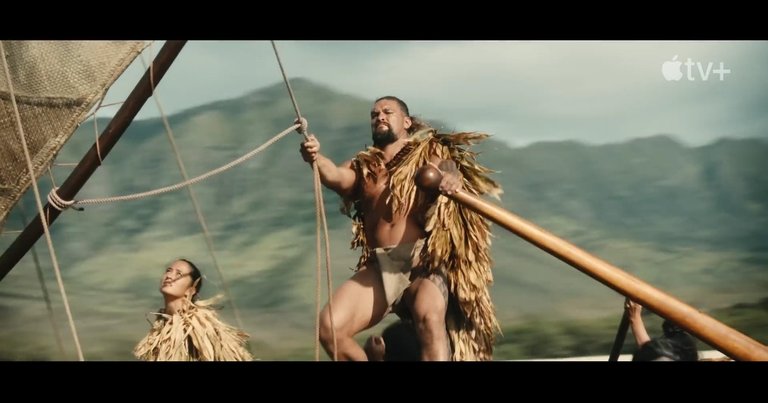
I also thought about leadership- what it actually means to lead people, to sacrifice self comfort of people to their future. Kaʻiana was not always right in her choices. He failed. He lost. However, he cared so much about his people and that is how all his decisions, all his battle calls, all the times he was vulnerable were filled. Chief of War is a daring book in a world that glorifies winning, that wants to celebrate the conquered, the whole, the black and white.
This is not the series you can follow on in the background as you scroll on your phone. It requires concentration. It is worth spending your time. If you are that person who loves rich cultured, gritty, emotion, and applicable in the current narratives of identity, sovereignty, and colonialism, then Chief of War is your book.
However, beyond the socio-political burden, it is merely a well-told, character centered epic. It is all there, spellbinding action, profound emotional journeys, eloquent narration, and memorable acting. It is a slow burn, it is, but when it clutches you it never releases.
Chief of War is not only a period drama. It is a retake. It is a voice of those who were never heard before because their narratives were buried under history books and alien narratives. It reminds that warriors are not only those who fight with spears and swords but also those who fight to preserve their culture, dignity and stories.
I went to Jason Momoa. I remained because of the spirit of a nation. Now I bring the echo of that tale with me.
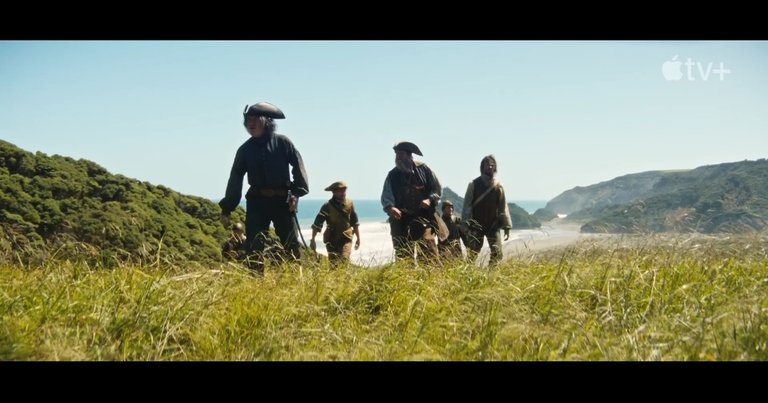
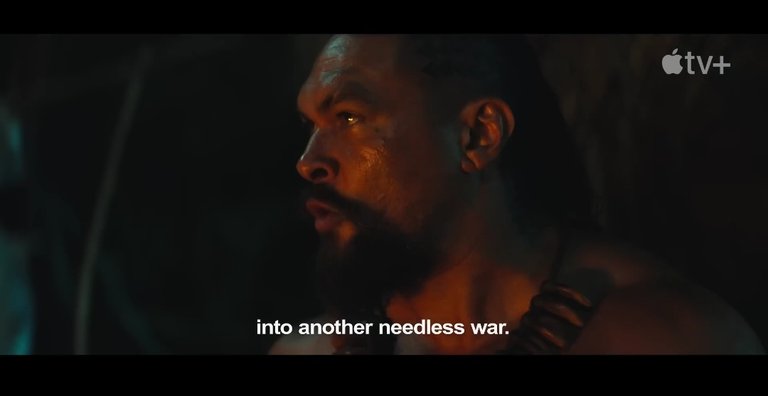
Thumbnail is designed by me on pixelLab and other images are screenshot from the movie
View or trade
LOHtokens.@seunruth, You have received 1.0000 LOH for posting to Ladies of Hive.
We believe that you should be rewarded for the time and effort spent in creating articles. The goal is to encourage token holders to accumulate and hodl LOH tokens over a long period of time.
Thanks LOH
This new era of Jason is actually amazing. Beginning from the movie series-See. He actually pulls off these roles like they are nothing and for sure I'm putting this on my watchlist!
Sending you Ecency curation votes.😉

Thanks for the curation
The reason I have not started watching this series is that I haven't found the time yet, it's been pumping up on my movies site, and with Jason in it, I'm very interested.
Thank you for this review it has given me what to expect.